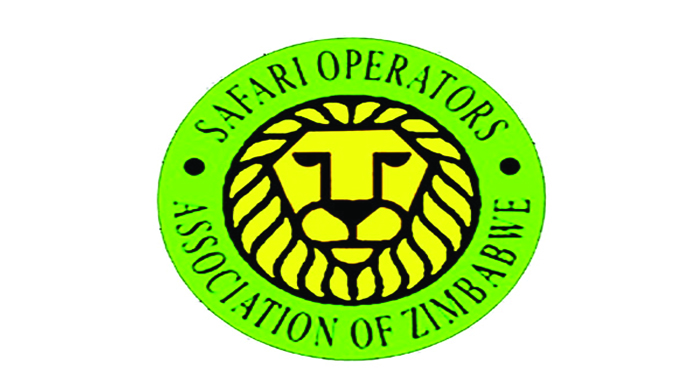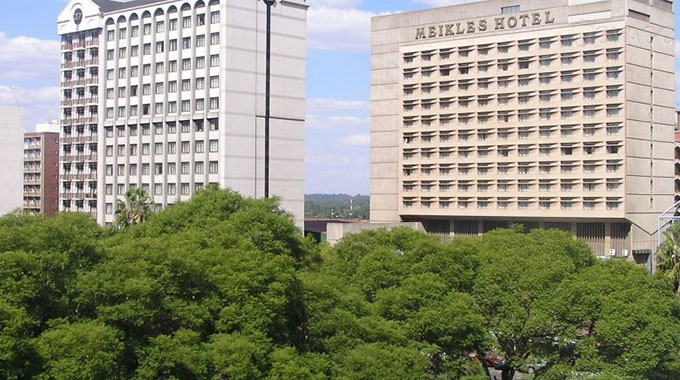Zimbabwe to maintain must-visit international hunting destination status

Emmanuel Koro, Analysis
DESPITE the Covid-19 pandemic’s disruptive waves that continue to result in international travel bans, the Safari Operators Association of Zimbabwe (SOAZ) plans to mount a vigorous campaign in 2022 in order to maintain Zimbabwe’s status as one of Africa’s most attractive hunting destinations.
International hunting has emerged as one of the most promising industries whose revenue has great potential to support wildlife and habitat conservation in Southern African hunting areas including Zimbabwe. It can at the same time fund rural infrastructure development.
The international hunting benefits have accordingly made rural communities co-exist with wildlife and value it more and in turn, continue to see the need to conserve it and its habitat.
Therefore, the SOAZ’s drive to continue promoting Zimbabwe as a must-visit international hunting destination by hunters worldwide has great potential to boost the funding for wildlife.
It also promotes habitat conservation as well as socio-economic development in hunting communities dotted all over the country.
“In Zimbabwe, we have been looking at opening new source markets, in particular, Central Europe and Russia with the view to reducing over-dependence on limited source markets,” said the president of SOAZ, Dr Emmanuel Fundira.
“As an organisation we always make sure that we attend all the major hunting shows (marketing platforms) and in that continuous level of interaction helps in maintaining destination awareness.”
Dr Fundira also confirmed that SOAZ would also be marketing Zimbabwe as one of Africa’s most attractive international destinations in Dallas Texas early next year at the International Hunting Convention where most African countries are going to market their hunts before the beginning of the hunting season in April 2022.
He said international hunting revenue “acts as a funding source for state agencies” and the hunting industry has continued to contribute towards habitat conservation and also “helps control wildlife population explosions.”
The SOAZ members include safari hunting companies/outfitters and professional hunters and guides who reinvest in all the areas they operate by engaging in wildlife and habitat conservation initiatives.
“Good examples include Save and Bubye conservancies and of course most if not all CAMPFIRE projects,” said Dr Fundira.
For international hunting to survive there is a need to ensure wildlife and habitat conservation.
Accordingly, SOAZ and its partners such as the Zimbabwe Professional Guides Association (ZPGA) have been working with Zimbabwean hunting communities to conserve wildlife and its habitat.
In a statement released this month, the ZPGA said one of its short-term anti-poaching efforts include the removal of disused telephone wire along the Hwange National Parks boundary, working together with many other interested and dedicated partners. Had the wire not been removed, “it may have been used to snare animals.”
“The idea was conceived as a way for members of the Zimbabwe Professional Guides Association (ZPGA) to give back to wildlife conservation and at the same time spend time in the outdoors that they love,” said the Vice-Chairman of the ZPGA, Mr John Laing.
“The ongoing Covid-19 pandemic has exacerbated the need for such a concept. With no clients in 2020 in both the consumptive and non-consumptive tourism sectors, and still a very limited season in 2021, there is little in the way of revenue and funding for conservation and protection of our most valuable and fragile resources, our wildlife, and the wild spaces in which the wildlife exists and depend upon for its survival.”
The ZPGA represents professional hunter guides who play a key role in the hunting industry to ensure the safety and well-being, and to monitor the conduct of hunting clients during hunting safaris.
The international hunting safaris are marketed and arranged (outfitted) by safari hunting companies or hunting contractors.
The safari hunting companies employ professional hunter guides for the duration of the safari. They also work together with Zimbabwean hunting communities where they take international hunters to conduct the hunts.
Meanwhile, a newly established Zimbabwe hunting communities organisation, the Community CAMPFIRE Association of Zimbabwe has welcomed the efforts that SOAZ and ZPGA are making towards marketing Zimbabwe as a must-visit international destination; in order to benefit wildlife and habitat conservation and to help support local communities’ infrastructural developments.
“The vigorous marketing of Zimbabwe as a must-visit international hunting is a good idea and good news for communities living with wildlife because if benefits from wildlife are maximised, the support of local communities is also possible,” said Mr Ishmael Chaukura the chairman of newly formed Community CAMPFIRE Association of Zimbabwe that operates independently without rural district councils control and lobbies for community maximum benefits from international hunting revenue.
“The risk to the international hunting industry if it fails to conserve the wildlife and its habitat and maximise community benefits is that commercial poaching will increase as well as the expansion of land for agricultural production.
Land that is spared for wildlife conservation will be replaced by farming activities as communities may decide to explore other livelihoods options.”
Mr Chaukura who is also a representative of the Masoka hunting community said the dictatorial campaigns by Western animal rights groups to ban the imports of hunting trophies into Western countries such as the United Kingdom will not succeed as long as international hunting continues to benefit wildlife and habitat conservation in Africa, including supporting socio-economic development in hunting communities.
“Nothing and no one can ever stop international hunting in Africa, including Zimbabwe,” said Mr Chaukura. “The wildlife international hunting revenue-built Masoka School has so far produced two medical doctors and more medical doctors and professionals will be produced in the future.
Masoka School has also produced accountants, teachers, nurses, technicians, and engineers, et cetera. The international wildlife hunting revenue enables children born into poverty to escape from it through education.
These international hunting revenue benefits make us appreciate the need to conserve wildlife and its habitat.”
Emmanuel Koro is a Johannesburg-based international award-winning independent environmental journalist who writes extensively on environment and development issues in Africa.











Comments